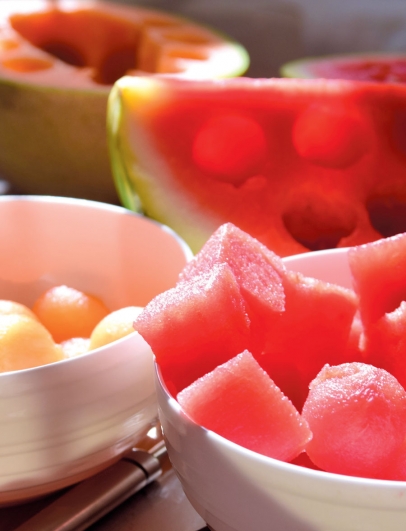The “Reading, Writing and ‘Rithmetic” of the Kitchen
Stones Soup Corner
Coming up with creative ways to get kids to love flavors other than salty or sweet was my job for a long time. With my first book, The Toddler Café (Chronicle Books, 2008), I encouraged parents to seek out new and unfamiliar flavors and introduce them to their kids in a fun and interactive way.
The “Dirt To Dine” cooking camp that I designed for Napa’s Connolly Ranch was exactly that, showing summer campers how their food “evolves” from the dirt to the table. We taught campers how their food actually grew from the ground in the ranch’s garden, and how much fun it was to participate in that growing process and then to cook what they harvested. We taught them how to use everything and not waste. We even made stock from scraps and bones. They loved it!
As my own child, now 13, has evolved, I find myself moving beyond “taste education” and recognizing many more learning opportunities in the kitchen. My Little Pretty Baking Kit (Chronicle Books, 2013) talks about concepts like how you can make 12 mini cakes or six full-sized cupcakes from the same recipe. My next book will use cooking steps to show kids how they can become “architects” without having to go to architecture school!
Once you boil it down to the basics, cooking requires a lot of math—my worst subject in school. If you had asked me then if I would ever need math as a grown-up I would have said “NO WAY!” In fact, I use math every day for cooking now, so boy was I was wrong. The difference is that now I need to understand math concepts, and perform the calculations, to do something I love: cooking. So I do.
Don’t make your own kids wait to figure out for themselves when they reach adulthood that they need to understand math, and that they might even enjoy it. Get them into the kitchen with you over the long summer break and they might not even realize they are learning real math concepts while having fun. Splitting or doubling a recipe? Using smaller increments of measuring spoons and counting out how many you need for the total? It’s as easy as pie!
They’ll also improve their reading and writing abilities (have kids rewrite recipes they’ve made and loved in a personal cookbook) and learn science and organizational skills while they’re at it, but mum’s the word…





